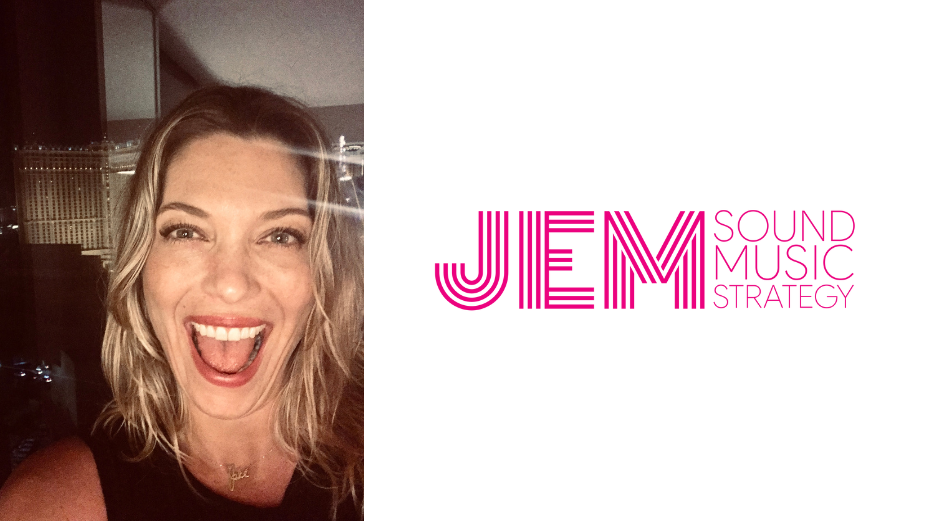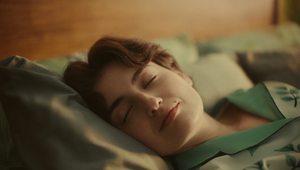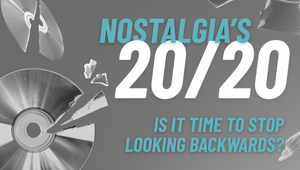
Music Itself Is Inclusive, So Why Isn’t the Industry?

An LA native, Jessica grew up in the music industry. Her 20-plus year music career first began as an intern at Maverick Publishing, while also writing music as an artist and songwriter for Warner Chappell. Over the past two decades, she has worked with an array of global brands and creative agencies as a head of production and executive producer at Massive Music, The Lodge, and other globally recognised music houses. Now, Jessica is focused on JEM Music + Strategy, an independent music supervision, licensing, composition and sound design company, which she founded in 2021.
As the executive creative music producer and supervisor at JEM, she has since curated a large team of composers, sound designers, publishers and artists to call upon for any musical or audio needs. The 100% woman-owned company provides full-scope music strategy solutions, and works with under-represented talent in the music composition space. Jessica’s strong belief in equity in the music industry, especially for women and people of colour, is a core personal value and one of the company’s core missions.

For the sake of brevity, I regret that this article is focusing only on the disparity in the female experience, and I acknowledge I am leaving an audience of people at the intersection of gender inclusion and disparity out of the following conversation. I hope you can forgive me while I make my point (and the irony it might highlight!). However, the overall sentiment can be applied to every under-represented group out there. Also, this sadly can be applied to most industries…
Transparency Is Key
I am a woman. I believe deeply that diversity, equity, and inclusion (DE&I) is both an asset and benefit to any company’s ethos. However, I see a continuation of the vast discrepancies in ‘preaching’ this and actually ‘practising’ this. First, bravo to all the companies out there who finally promoted their first class female creatives to leadership positions. Bravo to all the agencies who have pledged to ‘Free the Work’ and include more female directors and editors in their bidding practices. And thank you to all the brands who have strived to be as inclusive as possible in their advertisements (regardless of how I feel about the performative nature of this)… but in spite of all this, where’s the actual progress?
I’m curious to know if, and how many, creative women leaders’ salaries match their male counterparts. How many female directors are actually awarded the projects they bid on? And when they did win the bid, was it based on undercutting themselves? Sadly I don’t know, because there is a lack of true transparency. There’s a fine line between showcasing DE&I initiatives and actually making structural changes. One might refer to this as ‘talking the talk vs walking the walk’.
But let me segue to an area of focus I do know more about: music composition. This has been my area of expertise for 20 years as a music supervisor that works directly with many composers, artists and labels.
Let’s Look at the Numbers
Music, itself, is inclusive, yet the music business is not. Let me throw some numbers out at you and dissect exactly what I mean - that way, we can unpack why this should matter to brands and advertisers. The data on female composers is quite shocking. If agencies and brands are trying to be more equitable in who they are working with, there should be an awareness of a further layer - specifically who is being contracted by their vendors as well.
In the US, women make up 50.8% of our population. Depending on who you ask, women make up between 46-50% of the current workforce - the majority of which are working mothers with children under 18 years of age.
The recent postings on music composer demographics and statistics in the US show that 13.2% of all US composers are female; in addition there’s also a huge racial disparity, as 82.8% of all composers are white (men).
Between the years of 2013- 2021, the average number of female composers working on top Hollywood films was only 3.8%. In 2021, more than 90% of composers credited for the musical scores of Hollywood's top 250 movies were men. Still, that year's share of female composers (7%) was the highest among the data for the years 2013-2021.
The saddest truth of the matter is that we see this giant disparity for women across all fields in music. From C-suite job opportunities, to the percentage of production/writing credits for major artists, to entry level jobs in the audio fields, women - specifically in the composition and audio space - are overlooked and often under-developed.
To quote an article in the Atlantic, “Historically, audio engineering has relied on apprenticeships. An established engineer will find a younger person with potential and interest, take him under his wing, and teach him the job. Such mentorships foster loyalty but can also end up shutting women out of the field. “[The apprenticeship model] gives young women a challenge because it’s less likely that an older [male] engineer is going to see himself in a young woman,” says Susan Rogers, a professor at Berklee College of Music who was also the sound engineer on Prince’s ‘Purple Rain’. “So it’s another barrier of entry.”
Relative to where it was in the early 2000s, the entry level costs for music production is low. You no longer have to invest tens of thousands of dollars to create, record, and produce original music. Garage band comes with every Mac, and you can create beats and record songs on your phone. The playing field has been levelled, from a cost perspective. This means there are tons of new musical artists and producers out there, half of them are most likely female, yet the same opportunities that are afforded to men in this space are quite different from those afforded to women. There are tons of opportunities for composers in media, especially in today’s market, but the incongruity of who gets those projects, is the real question.
So, What Is the Call to Action?
Well, for starters, take note of this discrepancy and ask for transparency from your music partners. Many music houses act as the creative/production conduit between the agency/brand and composers. To guide the creative and production process, this absolutely makes sense. Unfortunately, however, this lends to the lack of transparency and connection with the composers and writers on these briefs. Consequently, there is no way to ensure, or even know, if the project leaders practise inclusive and equitable hiring of writers.
When agencies bid out jobs with directors and editors, it is transparent as to who they are engaging with, yet in music, you don’t necessarily have the benefit of knowing who is involved in composing for your project. While this may be the way it has worked for decades, I find this format to be extremely flawed, as it can hide these very disparities. If your company has made pledges to ‘Free the Work’ and be diverse, equitable, and inclusive in hiring talent, shouldn’t you know if your vendors are actively, and consistently, including women, LGBTQIA+ and BIPOC talent in this pool? The honest answer that most agencies and brand production companies would probably give is, ‘I have no idea’.
If you’re a company or brand championing the DE&I message, your ethos should extend to the vendors you work with and hire. If you know what is going on behind the scenes, then you can measure whether your vendors are being equitable in their practices.
I’ve long thought this was a backwards way of working. When I first started working at music production companies in 2003, I immediately noticed how few female composers, sound designers, or audio mixers were in the field, or even utilised at most sound companies. The thing is, there are way more females who are trying to make a career in audio production than ever before. In 2019, female enrolment at Berklee Online was up 65%, and the amount of female composers I have found on my own has been exponential… you just have to look.
It is all too common to think that women are less technical, less creative, or production savvy, or that a female audio producer/engineer is a novelty, when the real fact is that our perception is what needs to change. There is no lack of talented female composers who are available and looking for any opportunity to get their foot in the door. Our job as contractors should be to open that door for them. Your job as media and marketing professionals is to hold your vendor partners accountable to that.
Isn’t this how DE&I is supposed to work?















